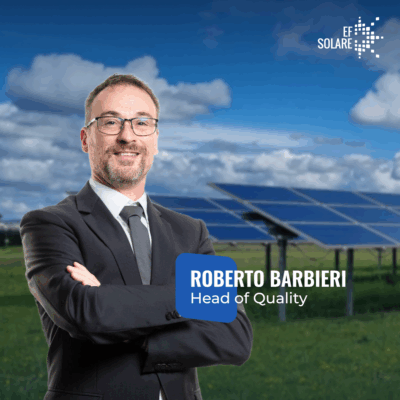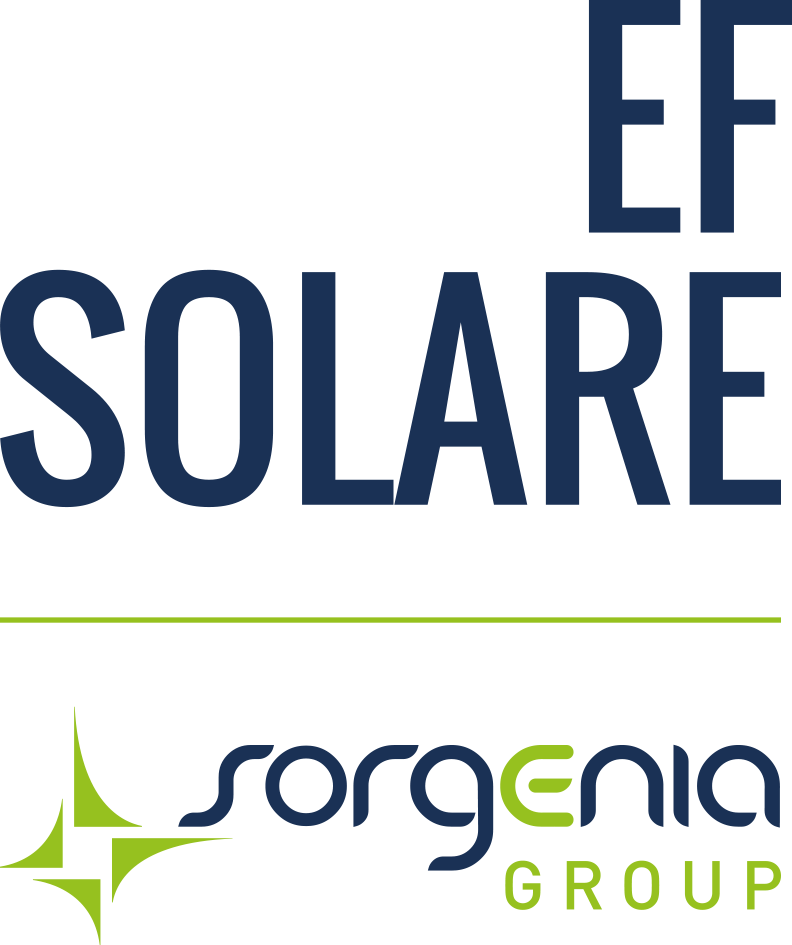Quality, safety, and environmental sustainability in photovoltaics
Roberto Barbieri, Head of Quality at EF Solare Italia, explains how a culture of quality – from the early stages of a project, through construction, to the management of photovoltaic plants – is the real glue holding together safe, sustainable, and efficient processes.
Roberto, can you tell us about your professional background and how you came to take on this role at EF Solare Italia?
My career path has been rather eclectic: after graduating in Environmental Sciences, I worked in analysis laboratories, then – almost by chance – in tourism, eventually becoming deputy director of a hotel. Later, I moved back more directly into the field of safety and quality, working as an inspector, consultant, and then as a Quality Manager. All these experiences taught me that soft skills, a broad vision, and curiosity truly make the difference. These are qualities that now help me perform a role requiring a constant 360-degree perspective.
 What tools have you implemented to ensure high standards?
What tools have you implemented to ensure high standards?
In photovoltaics, unlike in sectors such as oil and gas or nuclear, there are no established practices. When I joined EF Solare just over a year ago, I encountered both the challenge and the opportunity of building, together with all the relevant functions, including Operations and Supply Chain, a quality system.We worked to introduce shared checklists and procedures, for example, for the revamping and repowering of plants. We launched a management system based on the Kanban methodology, useful for improving coordination between functions. In addition, we are adopting Quality Control Plans (QCPs), true “shopping lists” that gather requirements, activities, and documents to be produced at every stage of a project.
Can you give us a concrete example?
During the revamping of a pilot plant, we involved site managers and subcontractors right from the start, gathering their feedback. This allowed us to write checklists that were more closely aligned with real on-site conditions and helped avoid problems at delivery. The same applies to tenders and later to kickoff meetings with suppliers: we don’t limit ourselves to discussing technical aspects, but immediately share procedures and the required documentation. This way, work is carried out in a structured manner and, by the end of the project, the result is much more organized and efficient.
The quality manager role is relatively new in photovoltaics. How has it developed in recent years?
It’s a need that comes from the market. With the introduction of certifications – such as ISO 9001 – it has become essential to demonstrate that processes are reliable. Moreover, in project management, the concept of the “triple constraint” has taken hold: time, cost, and quality. In the past, the focus was mainly on time and cost; today, quality has firmly entered companies’ DNA and has also taken on a central role in solar photovoltaics.
How much does quality affect the performance of photovoltaic plants and the energy transition?
Quality has a direct impact on the lifespan and reliability of plants. It does not mean rigidity, but rather the ability to learn. A nonconformity is an opportunity to improve and prevent the same issue from recurring. In this way, not only do you achieve a more efficient process, but you also contribute to a stronger energy transition, because every reliable photovoltaic plant supplies clean energy more consistently over time.
If you had to sum up your vision in one sentence?
Quality is a team effort. No one can guarantee results alone: diverse skills, shared tools, and the willingness to collaborate are needed in order to keep growing.

